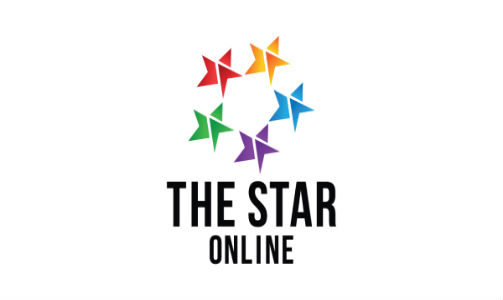Making the right choice

The Star, May 3, 2015
BY ZAINAH ANWAR
THERE are many verses in the Quran that speak about love and compassion, about men and women being each other’s friend and protector, about men and women being as close as each other’s garment.
These are wonderful Quranic values to guide the marital relationship between women and men. If we choose to lead our lives by these values, there is no place to treat one’s wife as if she is nothing more than a sex machine, duty bound to satisfy a man’s lust on demand.
And yet, we have many men of religion and men in politics who shamelessly pronounce the idea of taking your wife by force is Islamic. And, therefore, there is no such thing as marital rape in Islam.
The Prophet Muhammad married a woman 15 years older than him and stayed monogamous throughout his first marriage to his beloved Khadija.
And yet, so many men choose to value his marriage to a young Aishah and other women after the death of Khadija as the model marriage to follow to justify child marriage and polygamy.
Why should such choices that cause harm to women and children in today’s world be used to represent marriage in Islam? And not only that, even imposed on the rest of the Muslim community to be the definition of what being a good Muslim means?
Why not make the Prophet’s marriage to Khadija as the model Muslim marriage? Why should those Muslims who promote monogamy and demand the minimum age of marriage be set at 18 for girls be accused of going against the teachings of Islam?
Whose Islam, really? Which Islam?
This is where values, ethics and principles come in. For there are many interpretations, juristic opinions, concepts and tools that exist in the Muslim legal tradition that Muslims can use to guide them to the right answers to do no harm to others, to serve the best interest of the community and society as a whole.
When men who live in cloud cuckoo land utter pronouncements on a husband’s right over his wife’s body, on a man’s right to marry a 10-year-old girl, on how loud a Muslim can laugh, then they should be willing for their supposed authority to be questioned and ridiculed.
In today’s age of boundless information and borderless communication, many voices are speaking out to challenge the dominant conservative and misogynistic voices that use and abuse the authority of God’s words for authoritarian purposes.
It is heartening to see in this current debate on marital rape that there are other men of religion and civil society groups that are speaking out, challenging the misogyny that is so out of step with today’s realities.
I am increasingly meeting many young men and women who were once Islamists and who today have changed their views, now embracing human rights, women’s rights, democracy and believing in diversity of opinions in Islam. Many are energised by their new knowledge and feel the many unanswered questions from their teenage years that they were too scared to ask are finally being answered. I meet young women who feel enlightened and empowered to speak out as they cannot continue to believe in the traditional misogynistic teachings that make no sense to the realities of their lives and what they feel in their hearts.
While those in authority seem to fear that this questioning and thirst for new knowledge would lead Muslims astray, the contrary is true. To lead a life with your faith, your heart and your reality all in sync actually strengthen your belief. To realise that your sense of justice and fairness is actually upheld by the teachings of your faith and the possibilities for change exist within your tradition is to feel like a huge dark cloud has been lifted from your muddled mind, so they tell me.
It is possible to be Muslim and feminist, to be Muslim and a human rights activist, to be Muslim and a democrat, to be Muslim and questioning, challenging, and heck, to be Muslim and lead a joyful life.
And what is bad about that?
Change is always difficult, unsettling and threatening to the comfort zones we have lived in for decades. But if there is anything that is consistent about this world, it is change.
Those in authority, be it in politics or in religion, who continue to think they know best, need all the courage and honesty they can summon to acknowledge that the experience and assumptions that had shaped their certainties are not and will not be what will shape the 21st century.
To continue to trot out pronouncements on chopping off hands and feet, stoning people to death, child marriage, having sex on the back of a camel, without engaging with the realities of changing times and values, can do nothing but more harm to the ummah and the religion they proclaim to defend.
While it might be convenient to rally the troops by pronouncing then that Islam or the Malays are under threat, they must know that this cannot possibly be the right answer to the challenges to their authority and dominance, let alone to solving the real problems on the ground that is keeping their community behind.
Our ability to live together and celebrate the enriching diversity in our midst, to make the right choices that would benefit the best interest of our society, to be kind and compassionate, to encourage continuous learning and doing that would improve the lives of everyone, to adapt and adjust in ethical and moral ways to the changes before us – is what God would want us all to focus on in this world.
I seriously doubt if life’s priority in the 21st century is about having sex on a camel – should your husband demand it.
Back